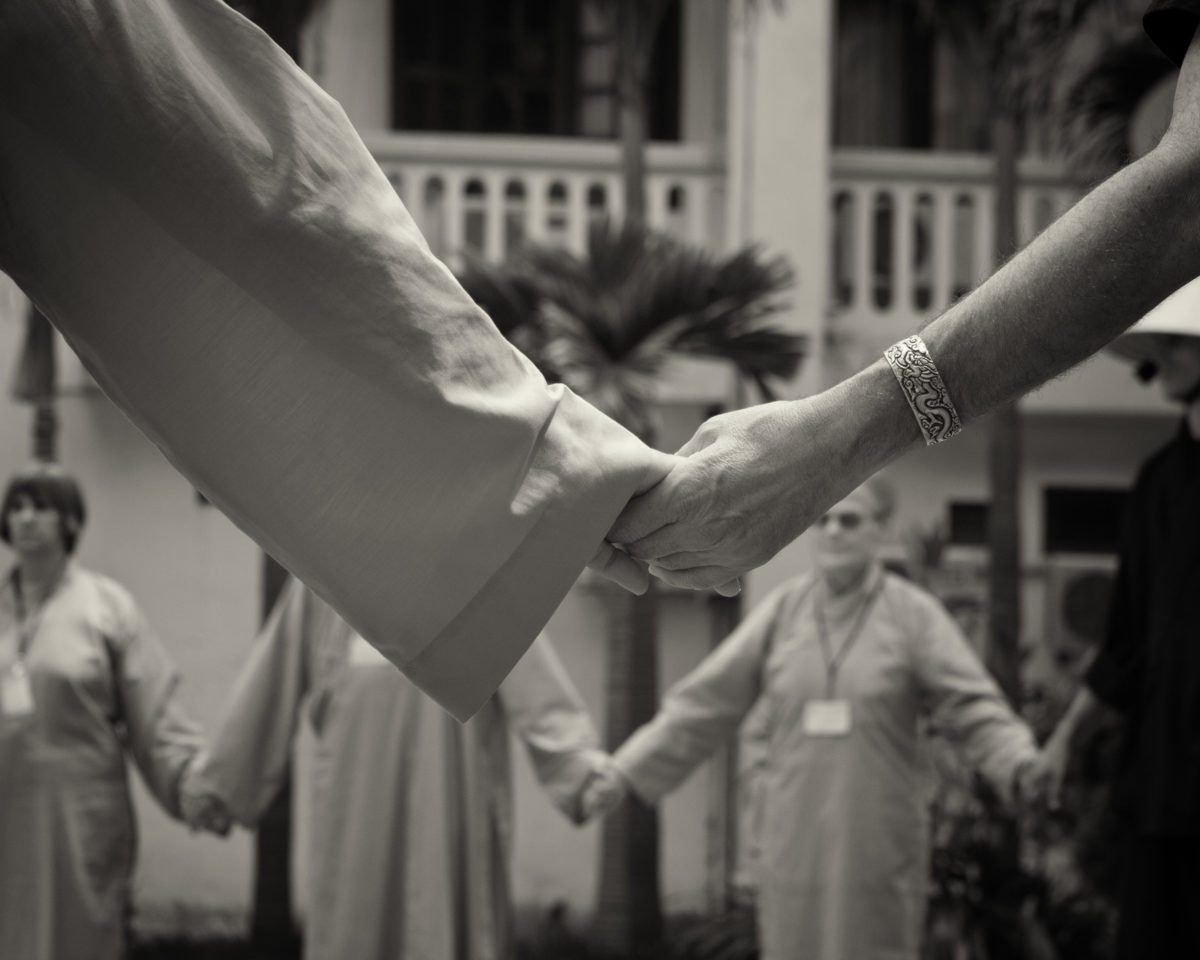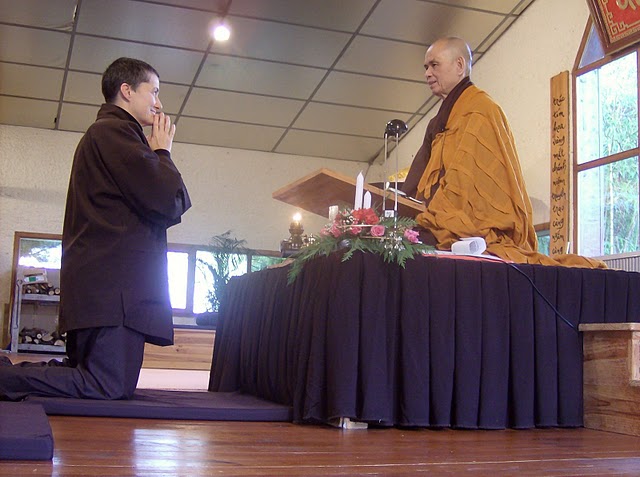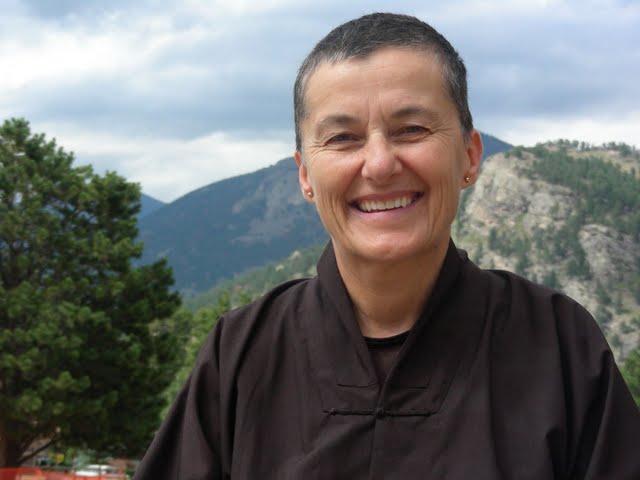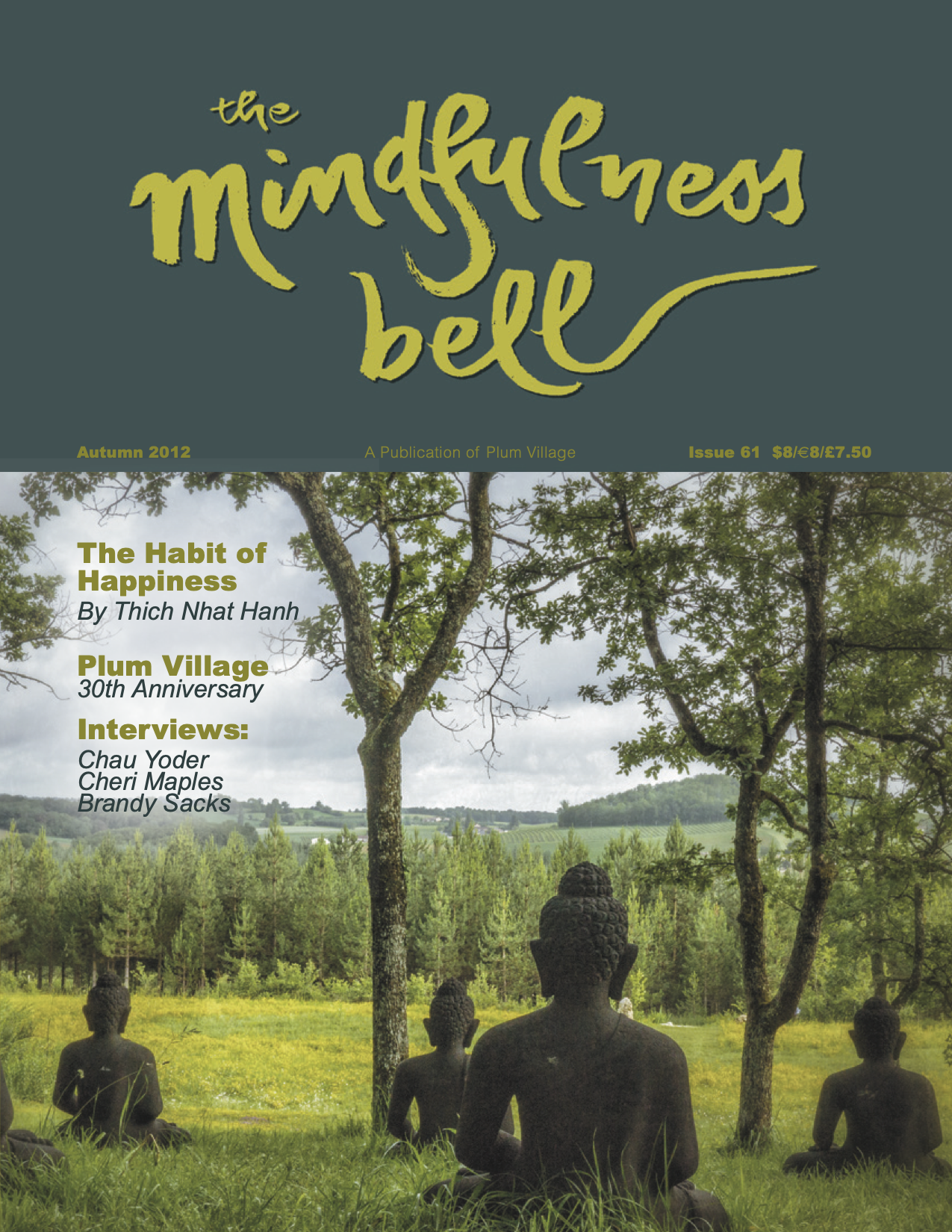An Interview with Cheri Maples

Cheri Maples was given the Lamp Transmission in 2008, and lives in Madison, Wisconsin. She worked for twenty-five years in the criminal justice system. She was a police officer for twenty years, ending her career as the Captain of Personnel and Training for the Madison Police Department. She was also the head of probation and parole for the State of Wisconsin and an Assistant Attorney General in the Wisconsin Department of Justice.
An Interview with Cheri Maples

Cheri Maples was given the Lamp Transmission in 2008, and lives in Madison, Wisconsin. She worked for twenty-five years in the criminal justice system. She was a police officer for twenty years, ending her career as the Captain of Personnel and Training for the Madison Police Department. She was also the head of probation and parole for the State of Wisconsin and an Assistant Attorney General in the Wisconsin Department of Justice. She is a licensed attorney and a licensed clinical social worker.
Cheri has learned peace in one’s own heart is a prerequisite to providing true justice and com passion to others. She specializes in translating the language and practice of mindfulness into an understandable framework for criminal justice professionals. Cheri also helps health-care workers, teachers, and employees of social service agencies to manage the emotional effects of their work, while maintaining an open heart and healthy boundaries
Cheri Maples was interviewed by Natascha Bruckner on July 11, 2012, for this special issue of the Mindfulness Bell.
Mindfulness Bell: The autumn issue of the Mindfulness Bell is celebrating the 30th Anniversary of Plum Village. When did you first go to Plum Village? Would you share some of the meaningful experiences from your time there?
Cheri Maples: I’ve only been in Plum Village twice—once for a summer retreat in 2002, when I was ordained into the Order of Interbeing, and again when Thay transmitted the Lamp to me in January of 2008. It seems like yesterday.
When I went on my first retreat with Thay in 1991, it was the beginning of a self-transformation that continues to this day. I wouldn’t have had the kind of career I had as a police officer and as head of probation and parole or as the Assistant Attorney General without Thay’s teachings.
The most significant experience I had at Plum Village was writing Thay a letter about my aspirations and putting that letter in the bell. I was in a challenging place as a police officer at the time, feeling very much on the victim continuum at times and the oppressor continuum at other times. The next day I was sitting in the back of the meditation hall during Thay’s Dharma talk. He spoke about the different faces of love and about fierce compassion and gentle compassion, and the need for wisdom and skillful means to combine them in the job of police officer. I sat in the back with tears streaming down my face. My heart was blown wide open.
Something very significant happened that day that affected the way I did things after that.
MB: Did you have interactions with Thay that were particularly influential or transformative?
CM: At that retreat I asked Thay during the question and answer session if he would do a retreat for police officers. He agreed, and the next year we had a retreat for criminal justice and helping professionals in Green Lake, Wisconsin.
Just as memorable was receiving the Transmission of the Lamp. Thay said to me that carrying a gun with compassion in one’s heart can be an act of love. He gave me a directive to take mindfulness practice to police officers and criminal justice professionals.
Another highlight was Thay meeting with the police officers at the retreat. When they first arrived, they were so angry that Thay was saying things like, “You can never fight violence with violence.” They asked me, “Cheri, what are we supposed to do when we go to a call and people are beating each other up?”
So Thay met with them for an hour and it was incredible to watch the energy in the room change. At the end of the retreat, the police officers were asked to do a presentation to the community. I’ve never seen police officers so open, sharing what it is like for them. It was a lesson to me in how understanding can be created by just getting people talking to each other.
After the retreat, the sixteen officers from my department who attended held hands and did walking meditation. Sixteen police officers holding hands, creating peaceful steps on the earth together, forming a circle afterwards, and bowing to each other, and hugging each other. Never in my wildest imagination did I think I’d ever see anything like that.
A couple of weeks later, a friend who had attended the retreat told me: “I saw two of your young officers who had been at the retreat; they were arresting somebody and they very gently put the person in the back of the car, then they turned and bowed to me.” That’s what interbeing has come to mean to me—no separation. No separation between the person bowing and the person who is bowed to, between the person we are arresting and the person we are protecting. Each of us has all the elements in us and we have to take good care of all the elements.
The other experience that has been particularly transformative to me is Thay’s emphasis on practicing mindfulness in daily life. I knew nothing about any of the intellectual concepts or frameworks of Buddhism when I went to that first retreat. Now all of them make sense to me, and I’ve learned them intuitively by practicing. At first my life was so busy, I could only find moments here and there to walk or eat or meditate. I was in law school and raising two young children and working full time and I still found a way to preserve my sanity with the practice. And over the years that just got stronger and stronger.

MB: What does “the Plum Village tradition” mean to you?
CM: I think the strongest part of our tradition that I don’t see in other Buddhist traditions in the same way, is the emphasis on Sangha and community. And also, the emphasis on engaged practice, taking your practice out into the world but being part of the practice organism. What that means to me is to build community wherever I am. To build relationships with all the people I work with and all the people I interact with, not just in the practice Sangha but in the workplace. It means seeing community and interbeing everywhere.
MB: Could you give a couple of specific examples?
CM: Our Sangha has taken on a prison project where several of us teach meditation and mindfulness. We have two people who do prison chaplaincy work and we have a number of people who run circles of support for people coming out into the community. We’ve had a few people released from prison who have become members of our Sangha.
I also travel around the country talking to different agencies in the public and private sectors about how to bring mindfulness to their organization and their daily lives. This includes attorneys, judges, and police and correctional officers, as well as people in social services who work with the families of children who have been neglected and abused. People who see horrible things that many people in society don’t see. People are starting to understand that the employees who experience trauma as the result of the violence they see over and over need help to do their job compassionately.
I also lead unconscious bias workshops as a way of personally committing myself to doing something about the incredible racial disparities in the criminal justice system throughout this country.
The thing that I am most excited about right now is an organization called the Dane County Time Bank, working to change the agreements around money in community through creating a bartering system. Many of the organizations and agencies in Madison (Wisconsin) belong, as well as over two thousand individuals. The philosophy is that one hour of my time is worth one hour of your time, so whether you’re a lawyer or work at McDonald’s, your time is valued the same.
When I spend an hour teaching somebody mindfulness, I get an hour building a website or learning accounting, having electrical work done, having the oil in my car changed. When you see this working in challenged neighborhoods, it creates public safety, because people start to see themselves as part of the community rather than just consumers and critics. Now I’m working to take time banking into a prison in Wisconsin. This is such a great way to transform the underground economy, which is usually based on drugs, to one based on human relational skills. They could provide hospice care for each other, they could tutor each other, they could sit with each other when they’re sick, they could provide legal work for each other. There are so many things that can be done.
MB: It’s moving to hear about this. It sounds revolutionary.
CM: When you start practicing in this tradition deeply, and you begin to see the connections, and you begin to do things from a place of compassion and caring, your heart gets so much more open. It gets really fun.
I’ve been honored to be part of restorative justice days in prisons; they have been phenomenal. When I deal with victims who are only interested in punishing the perpetrator, they don’t heal. But when they start looking for some meaning from the experience, which includes forgiveness and reconciliation, they begin to heal.
MB: How have you been able to be in the midst of violence and all of the emotions that go along with it, while maintaining your own inner peace and being a peacemaker as well?
CM: Fierce compassion means knowing how to set high quality boundaries while continuing to be part of stopping violence. It’s being clear about the intention in my heart. Am I angry at this person and wanting an eye for an eye? Or do I want to protect this person from the karma of their unconscious behavior as well as the people they might hurt? That’s a very different set of values to be armed with.
And it is very difficult and there are times when I feel angry and have to sit with it. But I work on finding that balance between compassion and equanimity. Equanimity means transforming the wounded view of my own self, not being attached to that view. And then helping others do that.
When we do unskillful things, it’s often because we’re attached to a wounded self. Victims can develop a sense of entitlement that can be just as dangerous as the oppressor’s abuse of power. We also have to learn to have faith in our Buddha nature and accept our humanity. I encourage people to ask themselves, “When will I be enough? What would make me enough?”
Although I do have the faith that the energy of the universe is always available to me, I also know it is important to take care of myself. I can’t expose myself to violence and suffering every day. I take time to water the seeds of joy and engage in the things that to me are very refreshing and healing.
In order to engage with compassion, which means to have an open heart in response to suffering, one has to have the tools of equanimity or you’ll get lost in anger. I see myself as a drop of water in this ocean of consciousness, that can be relied upon. That doesn’t mean I don’t have my ups and downs, but they don’t scare me anymore. I’m not trying to fence myself off from them.
Everything in life to me is the Dharma; everything is an opportunity to learn something.

MB: How do you water your own seeds of joy?
CM: I bicycle, I boogie board, I go on sailing trips with friends, I go on solo motorcycle camping trips, I spend time with my family and the people that I love. I live in a place that allows me easy access to nature. Meditating to me is a joy. I make sure I take time to go on a couple of personal retreats each year where I’m not teaching but I’m just a member. Sometimes I go on very long personal retreats. I’m a big baseball fan. Baseball waters the seeds of joy for me. To me, it’s a very Buddhist sport because it’s a timeless game and the goal is to come home. Most important, I get my next year’s calendar ahead of time, and I put in all the things I want to do to nourish myself; then all my teaching and work experiences are scheduled around those things, so I make sure that I have time for me.
I’m very committed to making sure the most important things for me are not at the mercy of the things that are less important. I try to live consciously in that way. And that has meant renouncing, giving up living in fast forward. I feel like I’ve found that balance of being of service and making sure that I take care of myself. “When I take care of me, I take care of you; when I take care of you, I take and have to sit with it. But I work on finding that balance between compassion and equanimity. Equanimity means transforming the care of me.”
MB: Do you have any advice for people whose lives are stuck on fast forward and don’t know how to transition to a more sane life where they’re taking care of themselves?
CM: To understand that being on fast forward is a choice. It might be an unconscious choice; it certainly was for me. This culture rewards us for striving, for achieving, for being competitive. Here are three pieces of advice: 1) Look at your attachment to a wounded self. Is it there? It doesn’t have to be. 2) Proactively manage your time so that the things that matter the most are not at the mercy of the things that matter the least. 3) Understand that everything you do is a choice. Being exposed to this practice and the tools that allow us to work deeply with our own capacity for freedom is a privilege, so take advantage of it.
MB: Is there anything you would like to add?
CM: I would like to send my love to the entire Order of Interbeing and particularly to Thay and the monastics, who have been so crucial to my self-transformation.

